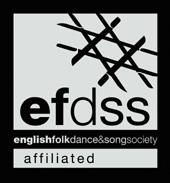Frequently Asked Questions
Q. Is this the kind of dance where I need to bring a
partner?
A. NO! Of course you can if you want to,
but don't let the lack of a partner stop you from coming to the dance.
It's also perfectly in keeping for Ladies to dance together. Come to
the dance on your own, come in a group, come with a partner -- just
come and have fun!
Q. Do I need any special shoes or clothing?
A. No! Just a pair of shoes you feel comfy in, and your own choice of
clothing. You would look out of place in check shirts, straw hats, and
cowboy boots! Come as you are.
Q. What age do you have to be?
A. Any age, really. Children from junior
school age can cope very well, and people of every age can enjoy it
until well into old age. And people of all ages can dance it together.
Q. Is it anything like ceilidh dancing?
A. Yes, but with some important
differences. In Scottish and Irish Ceilidhs, there are about half a
dozen dances that "we all know from school". Country dancing can
choose from many hundreds of different dances, so a bit more thinking
and learning is needed!
Q.
Is it anything like line-dancing?
A. Only in one sense; most of the dances
are a set of movements which are repeated. The main difference is that
you do not dance by yourself, doing exactly the same as the others,
but you play different parts in teams or sets or groups.
Q. Is there a lot of form-filling?
A. No! Just pay a small weekly charge on the evenings you come along.
Some clubs would like some contact information, just in case there is
some problem, like the hall being suddenly unavailable. It can happen.
Q. What is the difference between an
English ceilidh and a barndance?
A.Not much. They are both easy-going dances very suitable for
beginners. If anything, the ceilidh is a bit more rumbustious and the
barn dance a bit more sedate.
Q. Where can I get a band for my barndance
or ceilidh?
A. Start by following this link. to our Newsletter page, then click
for Bands And Callers (you will need both).
Q. Is it anything like Sequence Dancing?
A. In one sense, it is. Most English dances feature a series of linked
movements or steps, which are repeated a number of times - a sequence.
The main difference is that the dancing is not done in Couples, but in
larger groups, often with each couple in the group in turn leading the
sequence.
Q.
Do I have to join the EFDSS?
A. No. The EFDSS (English Folk Dance & Song Society) is the parent
body for all English country dancing, and the local clubs are
affiliated to it. Many local dancers are members of EFDSS, and all
dancers are encourage and invited to join, but it is not compulsory or
essential.

